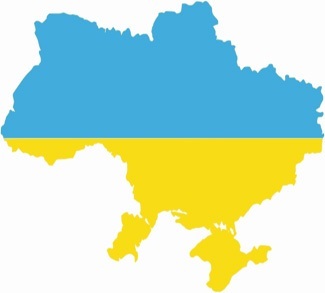Over the past two and a half years, Ukraine, despite lacking a formal navy, has been steadily eroding the strength of Russia’s naval presence in the Black Sea. Once a dominant force, Russia’s Black Sea Fleet has now largely withdrawn from occupied Crimea under relentless Ukrainian strikes and drone warfare. Ukraine’s aim is to entirely neutralize Russia’s Black Sea capabilities, removing the threat they pose. In July 2024, Ukraine announced that Russia had pulled its last patrol boat from Crimea, effectively ending the Black Sea Fleet’s presence on the occupied peninsula.
Russia’s forced retreat was driven by Ukraine’s proactive use of Western-supplied cruise missiles and domestically developed naval drones. These combined efforts have caused substantial damage to the Russian fleet, sinking flagships, destroying smaller vessels, and even incapacitating a docked submarine.
Speaking about the gravity of the situation, retired US Army Major General Gordon Skip Davis Jr remarked: “Ukraine’s actions have wrestled control of Ukraine’s western territorial waters back from Russia and prevented the Black Sea Fleet from threatening Odesa with amphibious assault or providing tactical fires and logistical support to Russian forces in Kherson.”
Over the last 24 months, Ukraine has intensified its efforts, crippling Crimea-based Russian air defenses and striking critical naval assets. On September 22, 2023, a devastating bombing of the Black Sea Fleet headquarters in Sevastopol killed the fleet’s commander. These achievements are especially remarkable given Ukraine’s lack of a conventional navy. Instead, Kyiv has leveraged domestically produced drones, long-range cruise missiles supplied by Western allies, and covert commando operations in Crimea.
The Black Sea’s strategic significance goes beyond Ukraine and Russia, serving as a vital channel for global grain exports, much like the Persian Gulf’s role in oil. This region’s stability is essential for multiple economies, including Turkey’s, and for the global agricultural market as well. Since Russia’s full-scale invasion in 2022, grain prices have surged globally, impacted by the loss of 30% of Ukraine’s farmland and Russia’s blockade of Ukraine’s coastline. Russia’s withdrawal from the UN Black Sea Grain Initiative in July 2023 further jeopardized Ukrainian grain exports, but Ukraine’s persistent strikes on Sevastopol and other strategic locations have forced Russian naval assets into retreat.
Ukraine’s primary objective remains the secure passage of cargo through its ports, particularly Odesa. Following Russia’s exit from the grain deal, Ukraine established a new shipping route—the “temporary humanitarian corridor”—which has been used successfully by commercial ships despite Russian threats. By targeting Russian vessels that threaten Ukrainian ports, Ukraine has pushed Russia onto the defensive. If Russia escalates by attacking commercial vessels, it could pressure Turkey to allow NATO ships into the Black Sea.
Beyond direct attacks, Ukraine’s strategy also seeks to escalate the costs for the Russian economy. By selectively targeting ships, Ukraine could raise insurance rates, making Russian ports less viable for commercial operations. Novorossiysk, a critical commercial and naval hub, is especially vulnerable due to its proximity to Crimea and limited infrastructure. Ukraine’s successful naval drone attack on Novorossiysk in August 2023 underscored this weakness.
Control over Crimea is essential for access to the Sea of Azov, a critical waterway connecting to the Black Sea through which significant Russian oil exports flow. Securing the Black Sea could allow Ukraine to block Russian activities in the Sea of Azov, disrupting operations across multiple ports and along the Rostov-on-Don River, giving Ukraine leverage to strain Russia’s war economy further. In July 2024, Dmytro Pletenchuk, a Ukrainian navy spokesperson, stated that Russia had withdrawn all its vessels from the Sea of Azov.
Should Russia fail to secure its fleet, it may be forced to relocate ships to the Caspian Sea, as it has previously done—a clear strategic setback. Additionally, Russia has arranged for a permanent naval base along the Black Sea coast of Abkhazia, a Georgian breakaway region, as it relocates its fleet from Crimea. This new base in Ochamchira, nearly 700 kilometers away, complicates Ukraine’s strike capabilities but highlights Russia’s strategic retreat.
General David Petraeus praised Ukraine’s innovative approach to leveraging technology in asymmetrical warfare, noting, “The Ukrainian use of technology—particularly air and maritime drones, with ground robotic systems soon to follow—is sheer genius. For Ukraine to sink over a third of the Russian Black Sea Fleet and force its withdrawal from Sevastopol and the western Black Sea without any substantial naval assets is an extraordinary tribute to both the Ukrainian tech sector and those in uniform operating these systems.”
Restoring Ukrainian sovereignty over Crimea would not only bolster Ukraine’s southern coastal defenses but also revitalize its economy through renewed port access, while curbing Russia’s influence in the Black Sea region. For Ukraine, retaining control over Crimea is more than a strategic move—it is essential for national security, as allowing Russia to hold this territory would leave Ukraine perpetually vulnerable to Kremlin aggression.
David Kirichenko is an Associate Research Fellow at the Henry Jackson Society, a London-based think tank. He can be found on the social media platform X @DVKirichenko. This piece is an excerpt from a report presented by the author at the UK Parliament on October 9, on behalf of the Henry Jackson Society, titled “Military Lessons for NATO from the Russia-Ukraine War: Preparing for the Wars of Tomorrow.”
The views expressed in this article belong to the author(s) alone and do not necessarily reflect those of Geopoliticalmonitor.com.




